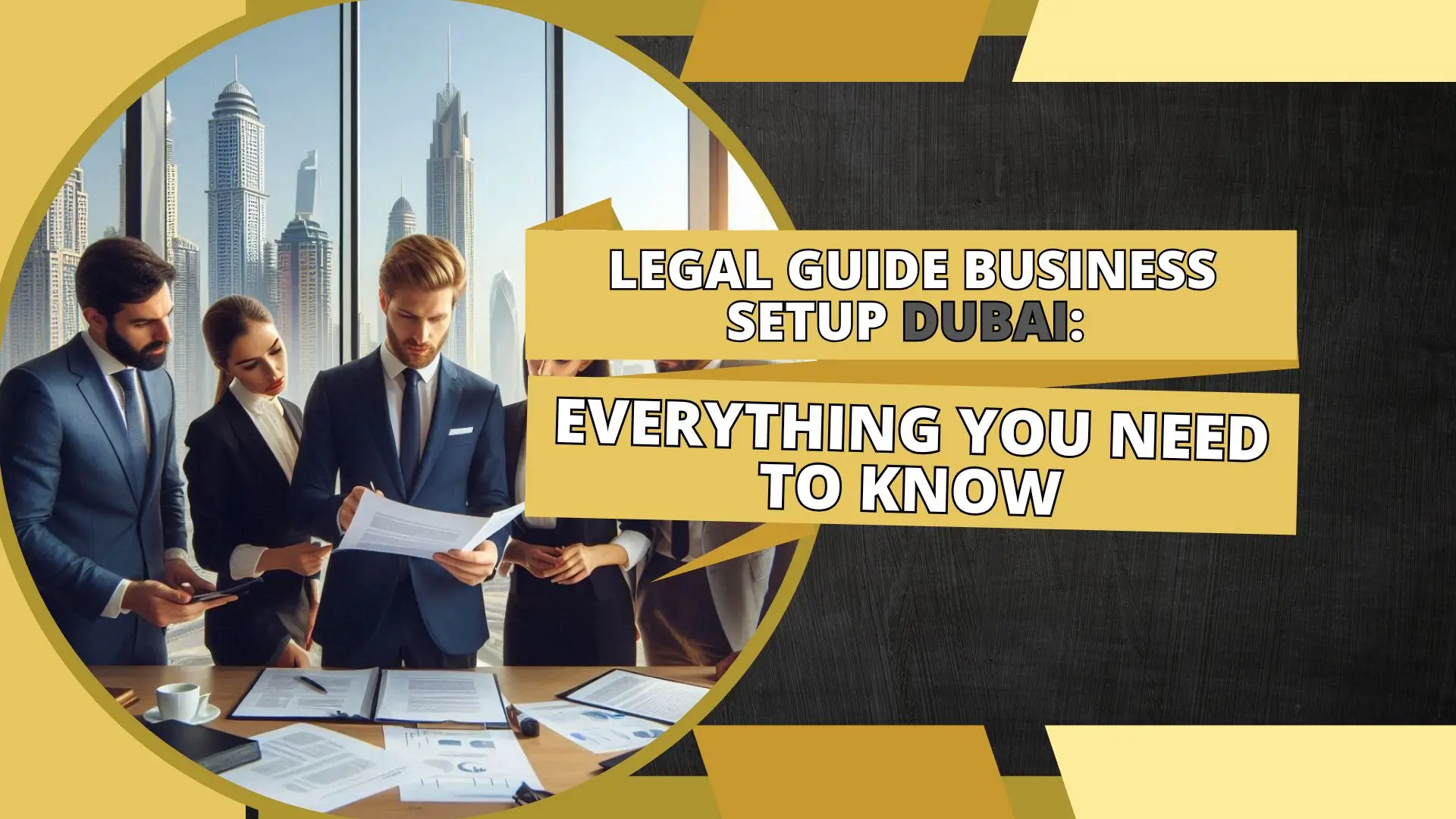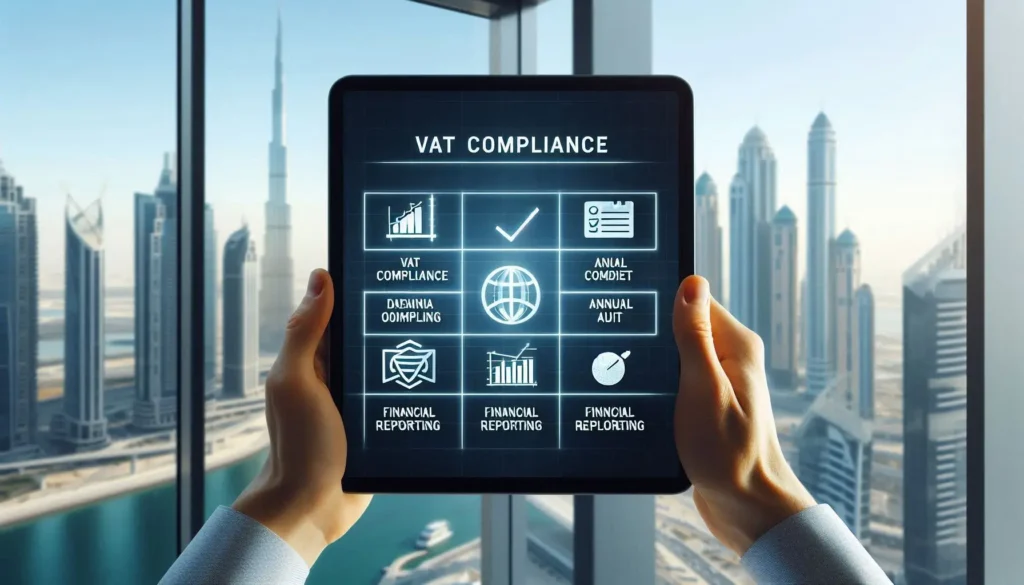
With Dubai’s booming business environment and attractive incentives, it’s no surprise that entrepreneurs worldwide are eager to establish their companies here. This legal guide business setup Dubai provides everything you need to understand the legal framework, from company formation laws to visa requirements and tax compliance. Avoid legal roadblocks—here’s everything you need to know about setting up in Dubai.
Why Dubai is Ideal for Business Ventures
Dubai has positioned itself as a global business hub thanks to its strategic location, favorable tax policies, and high-quality infrastructure. Companies in industries like Minerals and Mining, Real Estate, Digital Marketing, and Project Management benefit from a supportive economic landscape and abundant business opportunities.
The Dubai government encourages foreign investment and supports innovation across various industries, making it an ideal location for both large corporations and small businesses. Setting up a business here allows companies access to regional and global markets, opening doors for expansion and growth.
An Overview of UAE Company Formation Laws and Regulations
The process of starting a business in Dubai is primarily governed by UAE company formation laws, which are structured to accommodate different types of businesses. The Department of Economic Development (DED) oversees the licensing and registration process for companies operating in Dubai. Depending on your business activity, you may also need approval from other regulatory bodies like the Dubai Health Authority (DHA) for healthcare businesses or the Knowledge and Human Development Authority (KHDA) for educational institutions.
Key Regulatory Frameworks in Dubai

- DED Regulations: The DED is the main regulatory body for business setup in Dubai, handling licensing and commercial regulations for mainland businesses.
- Free Zone Authorities: Dubai offers over 30 free zones, each governed by its own set of rules and regulations, ideal for businesses focusing on international trade and reduced tax exposure.
- Offshore Jurisdictions: Offshore setups are an option for companies wanting to operate outside the UAE’s economic boundaries while still benefiting from Dubai’s infrastructure.
Choosing the right structure for your business depends on factors like ownership requirements, tax obligations, and business activities.
Business Structures Allowed in Dubai

Dubai offers several business structures, each catering to specific business needs. Understanding these structures helps in aligning your business goals with regulatory requirements.
Limited Liability Company (LLC)
An LLC is the most common structure for foreign investors. It requires a UAE national as a sponsor holding 51% ownership, while the foreign investor holds 49%. This setup is popular for sectors like Trading, Real Estate, and Professional Services because it allows for substantial control over the business while fulfilling local ownership laws.
Free Zone Company
A Free Zone Company (FZC) provides 100% foreign ownership and is an excellent choice for export-oriented businesses. Popular among industries such as Digital Marketing, Solar Energy, and Technical Services, free zones allow companies to operate with fewer restrictions. However, these companies are generally limited to operations within their specific zones or internationally and cannot trade directly in the UAE mainland without a local distributor.
Branch Office
Branch offices allow established foreign companies to expand operations in Dubai. This structure is suitable for businesses in Oil and Gas, Marine, and Shipping, where a strong regional presence is advantageous.
Sole Proprietorship
A sole proprietorship is ideal for individual entrepreneurs looking to set up professional services. Although it allows full control, this structure also implies unlimited personal liability.
Essential Licenses and Permits for Dubai Business Setup

In Dubai, every business requires a trade license, with specific licenses tailored to different types of business activities.
Types of Licenses
- Commercial License: Suitable for trading companies, including those in Car Rental and Trading industries.
- Professional License: This license supports service-oriented businesses, making it ideal for Consulting, Digital Marketing, and Entertainment ventures.
- Industrial License: Issued to companies involved in manufacturing or industrial activities, including industries like Chemicals and Solar Energy.
Different industries may require additional permits. For instance, a real estate business might need approval from the Real Estate Regulatory Agency (RERA), while a food business would need a permit from the Food Control Department.
Ready to navigate Dubai’s licensing landscape?
Contact our experts for guidance on obtaining the right permits for your business.
Visa Requirements for Business Owners and Employees

One of the essential aspects of setting up a business in Dubai is managing visa and immigration requirements. Dubai offers several types of visas for business owners, employees, and investors, each with specific eligibility criteria.
Types of Visas
- Investor Visa: Provides long-term residency for investors who establish or invest in a business.
- Employment Visa: Companies are responsible for sponsoring their employees’ work visas. This involves processing applications and ensuring compliance with labor laws.
- Golden Visa: Offers extended residency options for investors, skilled professionals, and exceptional talents, making it ideal for those planning long-term operations in Dubai.
Visa processing also includes medical checks, an Emirates ID, and documentation submission. Efficient management of visas ensures legal compliance and smooth business operations.
Key Legal Steps for Business Setup in Dubai

Establishing a business in Dubai requires careful attention to legal steps to ensure compliance with UAE company formation laws.
Steps for Legal Compliance
- Name Registration: Select a unique business name that adheres to DED guidelines.
- Shareholder Agreement: Outline the rights and obligations of each shareholder, especially in LLCs where UAE nationals hold 51% ownership.
- Local Sponsor Agreement: For mainland LLCs, a local sponsor is required to hold 51% of shares, though operational control can be managed by the foreign owner.
- Office Space Lease: Many businesses, especially those in free zones, require a physical office lease as part of the registration process.
Tax Compliance and Financial Regulations

Tax compliance is an integral part of maintaining a legitimate business in Dubai. Although Dubai offers a tax-free environment for many sectors, companies must comply with certain financial regulations, particularly regarding VAT.
Key Tax and Financial Obligations
- VAT Compliance: Value Added Tax (VAT) is applicable to goods and services in the UAE at a standard rate of 5%. VAT registration is mandatory for companies meeting the minimum turnover threshold.
- Annual Audits: Depending on your business type, audits may be mandatory. Many companies, especially those in free zones, are required to submit audited financial statements annually.
- Accounting Standards: Following International Financial Reporting Standards (IFRS) is highly recommended, ensuring transparency and accuracy in financial reporting.
Navigating Common Legal Obstacles in Dubai

The Dubai business setup process has its challenges, from complex sponsorship arrangements to navigating industry-specific licensing. Here are some typical obstacles and how to overcome them:
- Local Sponsorship: For mainland businesses, obtaining a UAE sponsor can be tricky. Clear agreements can help delineate financial and operational roles, minimizing conflict.
- PRO Services: Public Relations Officer (PRO) services are essential for tasks like document clearance, visa applications, and license renewals. Using PRO services reduces administrative burden and ensures compliance.
- Licensing Complexity: Depending on your business activity, obtaining licenses can be time-consuming. For example, setting up a consultancy may require additional approvals, while a food business must comply with hygiene and health inspections.
PRO Services and How They Simplify Setup

PRO services streamline the documentation and administrative tasks involved in business setup, helping entrepreneurs focus on their core business activities.
Benefits of PRO Services
- Visa and Documentation: A PRO handles visa applications, renewals, and cancellations, reducing delays.
- Government Communications: PROs manage all government-related tasks, ensuring timely submissions and responses to inquiries.
- Renewal Reminders: With a PRO, business owners receive timely reminders for trade license renewals, residency renewals, and other mandatory filings.
PRO services are beneficial for businesses with substantial administrative requirements, including those in sectors like Real Estate, Car Rental, and Marine and Shipping.
Benefits of Working with Expert Business Consultants in Dubai

Choosing experienced consultants who understand Dubai’s legal and business environment can make a significant difference in your business journey.
How Consultants Add Value
- Compliance Expertise: Consultants keep you up-to-date on the latest legal requirements, ensuring that your business is always compliant.
- Strategic Advice: With over 20 years of experience, our team can help you choose the best business structure, acquire necessary permits, and stay ahead of regulatory changes.
- Financial and Tax Guidance: Taxation and financial management are areas where expert advice is beneficial. Our consultants can guide you on VAT registration, tax filings, and audits.
FAQ
Q1: How long does it take to set up a business in Dubai?
Answer: Typically, the process takes between 1-4 weeks, depending on the business structure and required approvals.
Q2: Can foreign investors own 100% of a Dubai-based business?
Answer: Yes, foreign investors can fully own companies in free zones, whereas mainland companies require a local sponsor.
Q3: What’s the difference between a Free Zone and Mainland company?
Answer: Free zones allow 100% foreign ownership but restrict trading within the UAE. Mainland companies allow trading in Dubai and the UAE but require a UAE national sponsor.
Q4: What is a Golden Visa, and who is eligible?
Answer: The Golden Visa is a long-term residency option for investors, skilled professionals, and exceptional talents, promoting a stable business environment.
Q5: Do all businesses in Dubai need VAT registration?
Answer: Only businesses exceeding the minimum turnover threshold are required to register for VAT.



1 Comment
[…] ✅ Choose the Right Legal Structure […]